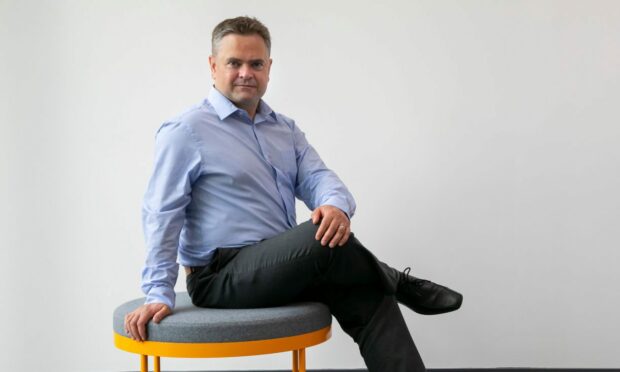A University of Dundee spin-out has won a licensing deal potentially worth more than £40 million.
Tay Therapeutics has agreed a deal with VYNE Therapeutics Inc, a US-based biotech firm focused on developing therapies for immuno-inflammatory diseases.
The Dundee company, which develops small molecules for oncology and severe inherited diseases, could receive $50m – more than £40m – in upfront and milestone payments.
The company spun out of the University’s School of Life Sciences in 2020. It now employs 10 people at its Dundee base.
Under the deal, the American firm has licensed exclusive rights to develop Tay Therapeutics’ oral BET inhibitor as a potential treatment for immune-inflammatory and fibrotic disorders.
Dundee firm’s ‘discovery and development’
Tay Therapeutics chief executive Dr Andrew Woodland welcomed the deal.
He said: “The second deal with VYNE is the culmination of two years of discovery and development of BET inhibitors with differentiated selectivity and safety profiles.
“I am delighted for the Tay team and consider VYNE ideally placed to continue developing and maximising the value of the BET inhibitor projects.
“This deal further validates Tay’s business model of growing organically using revenues to support development activities with around £6m received in upfront and milestone payments from the VYNE collaboration to date.”
Tay Therapeutics’ scientists work on bromodomain and extra-terminal domain (BET) inhibitors.
Research has determined a key role for BET inhibitors in inflammatory processes. This means they have the potential to treat a range of immune-inflammatory and fibrotic disorders.
TAY-B2, the molecule developed by the Dundee University spin-out and now known as VYN202, has demonstrated potent anti-inflammatory and anti-fibrotic effects in multiple pre-clinical models.
This led VYNE to exercise its option to progress the molecule for treatment of major immuno-inflammatory conditions with high unmet need.
Tay Therapeutics out-licensed its topical pan-BET inhibitor to VYNE for £16m in 2021.
The out-licensing of both projects will bring potential milestone revenues of over $65m. It will also earn the Dundee firm tiered royalty payments of up to 10% of net annual sales.
American firm’s boss ‘thrilled’
David Domzalski, president and chief executive of VYNE, said: “We are thrilled to be licensing the oral BET project from Tay.
“We look forward to developing an oral BET inhibitor molecule in immuno-inflammatory conditions that we believe, based on pre-clinical results, is potentially best-in-class.”
The Dundee University spin-out will now focus on developing a platform to discover and develop a new class of medicine that can cause the body to ignore specific mutations.
By restoring functional proteins, the drugs seek to address the root cause of these diseases.
Tay is supported by its seed investors o2h Ventures, Meltwind, Wren Capital, Scottish Enterprise and the University of Dundee.












Conversation